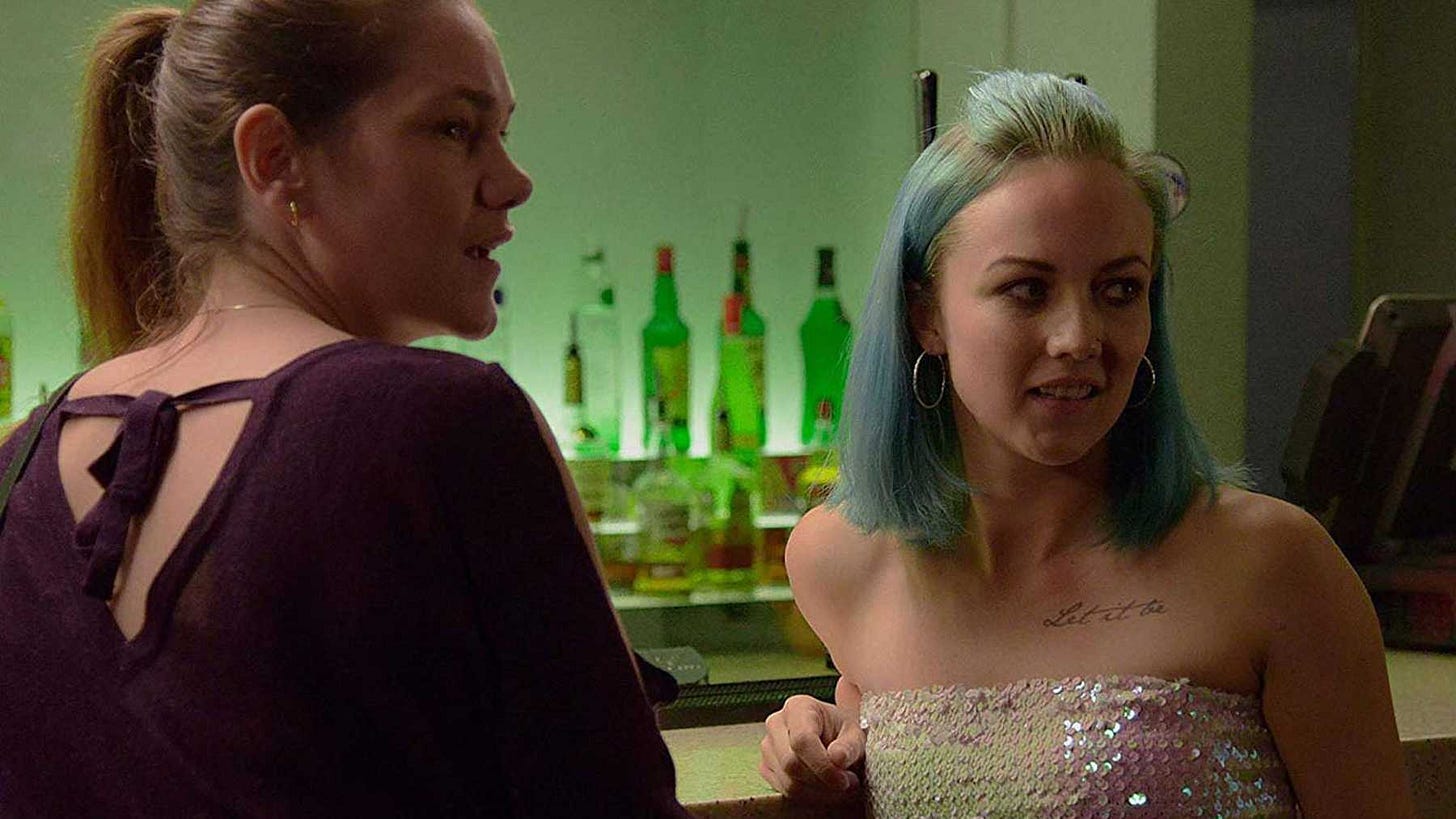Lynn + Lucy: review
Tabatha Batra-Vaughn reviews Fyzal Boulifa's anticipated debut "Lynn + Lucy."
Tabatha Batra-Vaughn reviews Fyzal Boulifa's anticipated debut "Lynn + Lucy."

Courtesy of Facebook
Lynn + Lucy begins much like a Loachian study of working class Britain. The film starts with the hope of a new birth as best friends, Lynn (Roxanne Scrimshaw) and Lucy (Nichola Burley) celebrate the baptism of Lucy’s first child. There is a sense of community, shared experience and joy; it feels like a milestone in both their lives. However, things seem off kilter as Lucy appears disturbed and detached from her new role as a mother, whilst Lynn and her husband are stuck in a cycle of apathy and resentment.
Fyzal Boulifa’s anticipated debut feature upturns your initial judgments and impressions, developing the film into a chilling meditation on morality, friendship and womanhood. Most crucially, the film explores the disintegration of Lynn and Lucy’s relationship alongside the breakdown of their community in the aftermath of a tragedy. As the suburban town becomes increasingly mired in scandal, the film unravels into a nightmarish witch hunt, allowing Boulifa to dissect the workings of a society in turmoil. Boulifa skillfully questions the characters’ unfounded judgments by exposing the damage and sorrow that ensues when infectious hatred takes hold of a group.

Courtesy of Facebook
Torn between the pressures of town gossip and her loyalty to Lucy, Lynn undergoes a crisis of friendship and belonging. Her anguish is felt desperately by the viewer as Scrimshaw’s intimate performance conveys the confusion and aimlessness often experienced after grief. To cement this sense of loss, Taina Gallis’ camera work lingers closely, in its claustrophobically square aspect ratio, on the characters’ faces. In one particular scene, the camera coaxes out Lucy’s innermost emotions, redolent of Maria Falconetti’s famous performance in Dreyer’s The Passion of Joan of Arc. However, the camera largely focuses on Lynn’s revealing expressions to tell the story of the unfolding scandal, culminating in a tense and often distressing drama.
The film sensitively approaches female identity and sexuality after birth without being didactic or judgmental. Lynn is initially presented as a settled, suburban housewife whilst Lucy is portrayed as the wild, anarchic friend. Lynn even admits: “I’m a mum, I’m a wife - I know it’s old fashioned but I’m good at it,” presenting a nuanced and honest portrayal of a modern woman who is comfortable in her domestic life. On the other hand, Lucy is bewildered by her first child, Harrison, as she fears her diminishing sexuality and freedom, though Boulifa’s thoughtful direction continually ensures no judgement is passed about either character’s choices.
In Boulifa’s award-winning short film The Curse (2012), the vicious cycle of sexual politics in Morocco is examined through a group of children and their fixation with a teenage girl’s sex life. Akin to an ancient parable, The Curse shares a similar tone and subject to Lynn + Lucy as both depict microcosms of female entrapment through sexual paradigms. This is made most stark by Boulifa when Lucy’s hair is hacked off by Lynn in the salon, darkly echoing medieval shaming rituals used to demarcate ‘fallen’ women. It is these lurid scenes with a moral and political subtext that make Lynn + Lucy an essential film for 2020. Boulifa effortlessly combines social drama with eerie undertones to challenge our perceptions of contemporary female identity, close friendship and certainty.


